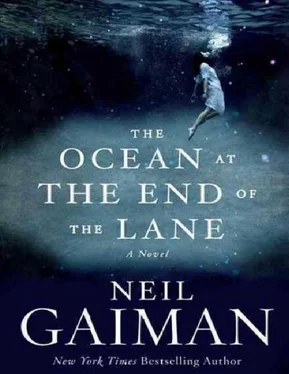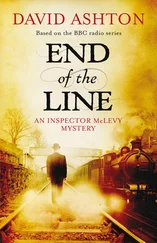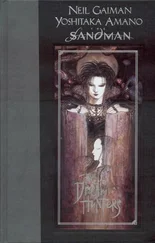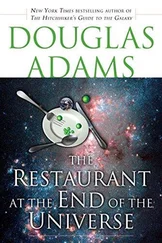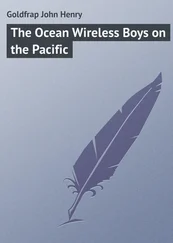She staggered down into the pond, until she was wading thigh-deep, her coat and skirt floating on the water as she waded, breaking the reflected moon into dozens of tiny moons that scattered and reformed around her.
At the center of the pond, with the black water above her hips, she stopped. She took Lettie from her shoulder, so the girl’s body was supported at the head and at the knees by Ginnie Hempstock’s practical hands; then slowly, so very slowly, she laid Lettie down in the water.
The girl’s body floated on the surface of the pond.
Ginnie took a step back, and then another, never looking away from her daughter.
I heard a rushing noise, as if of an enormous wind coming toward us.
Lettie’s body shook.
There was no breeze, but now there were whitecaps on the surface of the pond. I saw waves, gentle, lapping waves at first, and then bigger waves that broke and slapped at the edge of the pond. One wave crested and crashed down close to me, splashing my clothes and face. I could taste the water’s wetness on my lips, and it was salt.
I whispered, “I’m sorry, Lettie.”
I should have been able to see the other side of the pond. I had seen it a few moments before. But the crashing waves had taken it away, and I could see nothing beyond Lettie’s floating body but the vastness of the lonely ocean, and the dark.
The waves grew bigger. The water began to glow in the moonlight, as it had glowed when it was in a bucket, glowed a pale, perfect blue. The black shape on the surface of the water was the body of the girl who had saved my life.
Bony fingers rested on my shoulder. “What are you apologizing for, boy? For killing her?”
I nodded, not trusting myself to speak.
“She’s not dead. You didn’t kill her, nor did the hunger birds, although they did their best to get to you through her. She’s been given to her ocean. One day, in its own time, the ocean will give her back.”
I thought of corpses and of skeletons with pearls for eyes. I thought of mermaids with tails that flicked when they moved, like my goldfishes’ tails had flicked before my goldfish had stopped moving, to lie, belly up, like Lettie, on the top of the water. I said, “Will she be the same?”
The old woman guffawed, as if I had said the funniest thing in the universe. “Nothing’s ever the same,” she said. “Be it a second later or a hundred years. It’s always churning and roiling. And people change as much as oceans.”
Ginnie clambered out of the water, and she stood at the water’s edge beside me, her head bowed. The waves crashed and smacked and splashed and retreated. There was a distant rumble that became a louder and louder rumble: something was coming toward us, across the ocean. From miles away, from hundreds and hundreds of miles away it came: a thin white line etched in the glowing blue, and it grew as it approached.
The great wave came, and the world rumbled, and I looked up as it reached us: it was taller than trees, than houses, than mind or eyes could hold, or heart could follow.
Only when it reached Lettie Hempstock’s floating body did the enormous wave crash down. I expected to be soaked, or, worse, to be swept away by the angry ocean water, and I raised my arm to cover my face.
There was no splash of breakers, no deafening crash, and when I lowered my arm I could see nothing but the still black water of a pond in the night, and there was nothing on the surface of the pond but a smattering of lily pads and the thoughtful, incomplete reflection of the moon.
Old Mrs. Hempstock was gone, too. I had thought that she was standing beside me, but only Ginnie stood there, next to me, staring down silently into the dark mirror of the little pond.
“Right,” she said. “I’ll take you home.”
There was a Land Rover parked behind the cowshed. The doors were open and the ignition key was in the lock. I sat on the newspaper-covered passenger seat and watched Ginnie Hempstock turn the key. The engine sputtered a few times before it started.
I had not imagined any of the Hempstocks driving. I said, “I didn’t know you had a car.”
“Lots of things you don’t know,” said Mrs. Hempstock, tartly. Then she glanced at me more gently and said, “You can’t know everything.” She backed the Land Rover up and it bumped its way forward across the ruts and the puddles of the back of the farmyard.
There was something on my mind.
“Old Mrs. Hempstock says that Lettie isn’t really dead,” I said. “But she looked dead. I think she is actually dead. I don’t think it’s true that she’s not dead.”
Ginnie looked like she was going to say something about the nature of truth, but all she said was, “Lettie’s hurt. Very badly hurt. The ocean has taken her. Honestly, I don’t know if it will ever give her back. But we can hope, can’t we?”
“Yes.” I squeezed my hands into fists, and I hoped as hard as I knew how.
We bumped and jolted up the lane at fifteen miles per hour.
I said, “Was she—is she—really your daughter?” I didn’t know, I still don’t know, why I asked her that. Perhaps I just wanted to know more about the girl who had saved my life, who had rescued me more than once. I didn’t know anything about her.
“More or less,” said Ginnie. “The men Hempstocks, my brothers, they went out into the world, and they had babies who’ve had babies. There are Hempstock women out there in your world, and I’ll wager each of them is a wonder in her own way. But only Gran and me and Lettie are the pure thing.”
“She didn’t have a daddy?” I asked.
“No.”
“Did you have a daddy?”
“You’re all questions, aren’t you? No, love. We never went in for that sort of thing. You only need men if you want to breed more men.”
I said, “You don’t have to take me home. I could stay with you. I could wait until Lettie comes back from the ocean. I could work on your farm, and carry stuff, and learn to drive a tractor.”
She said, “No,” but she said it kindly. “You get on with your own life. Lettie gave it to you. You just have to grow up and try and be worth it.”
A flash of resentment. It’s hard enough being alive, trying to survive in the world and find your place in it, to do the things you need to do to get by, without wondering if the thing you just did, whatever it was, was worth someone having . . . if not died, then having given up her life. It wasn’t fair.
“Life’s not fair,” said Ginnie, as if I had spoken aloud.
She turned into our driveway, pulled up outside the front door. I got out and she did too.
“Better make it easier for you to go home,” she said.
Mrs. Hempstock rang the doorbell, although the door was never locked, and industriously scraped the soles of her Wellington boots on the doormat until my mother opened the door. She was dressed
for bed, and wearing her quilted pink dressing gown.
“Here he is,” said Ginnie. “Safe and sound, the soldier back from the wars. He had a lovely time at our Lettie’s going-away party, but now it’s time for this young man to get his rest.”
My mother looked blank—almost confused—and then the confusion was replaced by a smile, as if the world had just reconfigured itself into a form that made sense.
“Oh, you didn’t have to bring him back,” said my mother. “One of us would have come and picked him up.” Then she looked down at me. “What do you say to Mrs. Hempstock, darling?”
I said it automatically. “Thank-you-for-having-me.”
My mother said, “Very good, dear.” Then, “Lettie’s going away?”
“To Australia,” said Ginnie. “To be with her father. We’ll miss having this little fellow over to play, but, well, we’ll let you know when Lettie comes back. He can come over and play, then.”
Читать дальше
